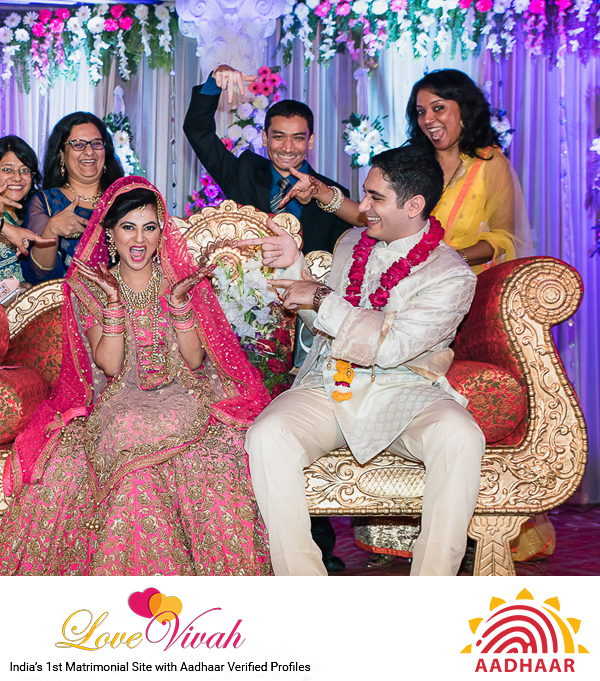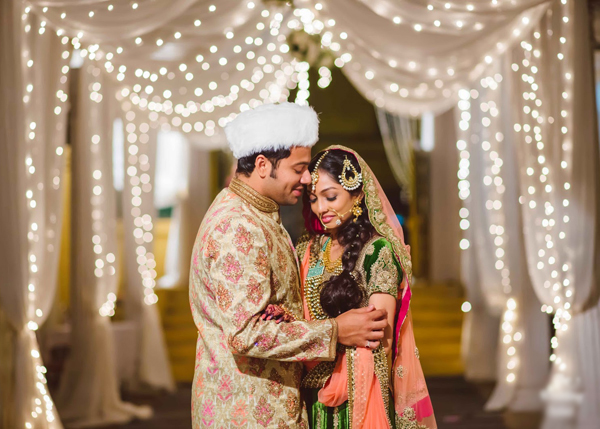Muslim wedding rituals are very sacred and colorful. If you got any chance to attend any Muslim wedding, you will realize that their wedding rituals are very simple yet elegant. They call their wedding as Nikah. It is an urdu word. The wedding rituals of Muslim matrimony may differ from region-to-region. We are here sharing some sacred rituals of Muslim wedding/Nikah to know it more closely.
Istikhara ritual: This is one of the most important wedding rituals for Muslim community. During this wedding ritual, the religious heads of the Muslim community come together to pray to Allah to seek his blessing to commence the wedding rituals.
Imam-zamin ritual: In this sacred ritual, the groom’s mother visits the bride’s house. The groom’s mother offer some gifts to Muslim bride before marriage like silver or gold coin wrapped in silk cloth, sweets, clothes and some other gifts. She ties that cloth with coin around bride’s hand.
Mangni: This ceremony is also known as engagement in Muslim matrimony. During this ceremony, the Muslim groom and bride exchange rings. Both the families also exchange gifts, fruits, dry fruits and sweets. This is one of the most important ceremonies.
Manjha ritual: In this ritual, the bride-to-be wear yellow clothes and a paste made out of haldi is applied on to her face and body of the would-be-bride and groom. After the Manjha ritual, the would-be-bride is not supposed to leave her house until the wedding day.
Mehendi ceremony: This Manjha and the Mehendi ceremonies are attended by very close relatives and family members, which is similar to the Hindu wedding rituals. In this ceremony, the henna designs are applied on the bride’s hands and feet of the bride as ritual. This is applied to increase beauty of the bride.
Nikaah ceremony: The Nikaah or wedding ceremony can be conducted at the home of bride or groom. They can also fix a convenient venue for the wedding. A Maulvi (priest) in the presence of close family members and relatives conduct the ceremony. The ‘Walis’ (father of the bride and groom) play an important role in the ceremony. During this ceremony Maulvi reads selected verses from the Quran and after that the Nikah-e-Qubul ceremony is conducted after which the Muslim wedding ceremony is considered as complete.
Mehar ceremony: On the day of the Nikaah, the elder members of the two families decide the amount of Mehar. This is a mandatory ritual in which a pre-fixed amount is given by the groom’s family to the bride as wedding ritual.
Nikaahnama: The Nikaahnama is document in which the marriage contract is registered. It contains a set of terms and conditions that must be respected by the both the parties, also gives the bride right to divorce her husband. For the contract to be legal, it must be signed by the Muslim bride and groom, Walis and the Maulvi.
LoveVivah.com Urdu matrimony website provides marriage resumes of brides and grooms. Find for your spouse with Aadhaar matchmakings profiles.


